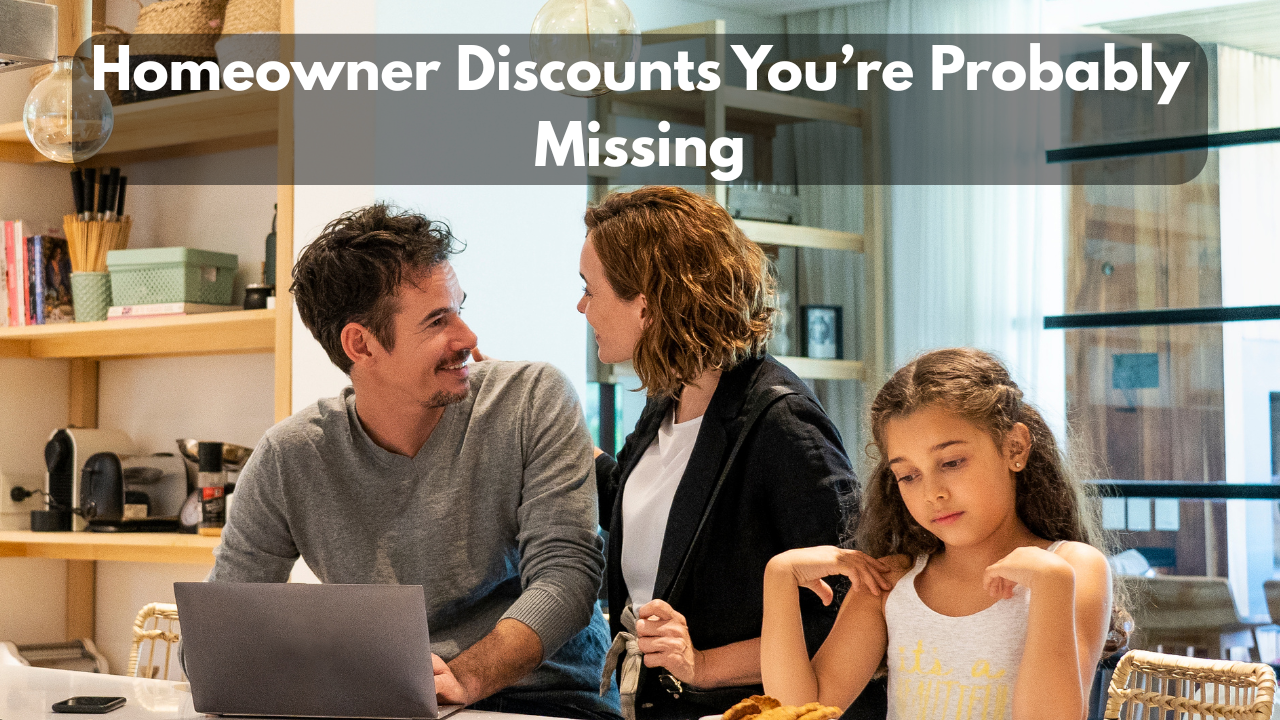Money-Saving Homeowner Secrets: 7 Discounts Most Beginners Miss

Are you paying more than necessary for your homeowners insurance? Have you reviewed your policy to make sure you’re getting all the discounts you qualify for?
This article breaks down the most overlooked, beginner-friendly ways to save money on your homeowners insurance — and how to unlock even more with expert help.
In this article we're covering bundling, smart deductibles, the impact of your credit score, and a lesser-known discount for staying claim-free. If you’re a homeowner looking to cut costs, this guide is for you.
7 Beginner Homeowner Discounts You Shouldn’t Miss
🏘️ 1. Bundle Your Policies for Easy Savings
Many insurance companies offer multi-policy discounts when you bundle your homeowners insurance with auto, life, or umbrella policies.
Bundling can cut your insurance costs by 10% to 25% — and it also simplifies your billing.
Tip: Work with an independent agent to compare bundling options across multiple carriers, not just one.
💰 2. Raise Your Deductible to Lower Your Premium
Your deductible is the amount you pay out of pocket before insurance kicks in. Raising it from $500 to $1,000 (or higher) can significantly reduce your premium.
A larger deductible is a great place to start if you're looking to lower monthly costs — just be sure you can afford it in case of a claim.
🚫 3. Avoid Filing Small Claims
Yes, many insurance companies offer a loss-free credit if you go several years without filing any claims — just like with car insurance.
Filing small claims can wipe out this discount and raise your future premiums.
Tip: If the damage is minor and affordable to fix, consider paying out of pocket to preserve your discount.
📈 4. Maintain a Strong Credit Score
Did you know your credit score can impact your insurance rate? Many carriers use an “insurance score” — and a good credit score improves it.
Higher credit = lower perceived risk = better pricing.
Resource: Consumer Financial Protection Bureau – Credit & Insurance
🧯 5. Upgrade Your Home for Safety Discounts
Installing devices like smoke detectors, water leak sensors, and monitored security systems can qualify you for home safety discounts.
Ask your agent: “What safety upgrades does my insurer reward — and how much can I save?”
🧱 6. Renovate With Insurance in Mind
Did you recently replace your roof or update your plumbing or electrical systems? These upgrades lower your home’s risk profile and can result in lower premiums.
Improvements that reduce the chance of a claim often qualify for a better rate.
⏳ 7. Take Advantage of Loyalty Discounts
Some insurance carriers reward you for staying with them over time. These loyalty or renewal credits can reduce your costs — especially when combined with a clean claims history.
The key: You often need to ask. These aren’t always applied automatically.
🧠 Why Work With an Independent Broker?
Capturing all these savings isn’t always straightforward. Insurance companies may not tell you what you’re eligible for — and most people never ask.
That’s where Vargas & Vargas Insurance makes the difference.
We’re an independent agency that works with multiple top-rated carriers — and we make sure you’re getting every possible discount you’ve earned.
You’ve now learned 7 powerful ways to save money on your homeowners insurance — from bundling and deductible choices to your credit score and claims history.
As a homeowner, your coverage is essential — but that doesn’t mean you have to overpay. Many people lose out on savings just because they don’t ask the right questions.
👉 Call Vargas & Vargas Insurance today at 617-298-0655 and let our local team review your policy for free. We’ll find out what savings you’re missing — and get them working for you.
We’re not just insurance agents — we’re advisors who help Boston-area homeowners make smart, informed decisions to protect what matters most while keeping more money in their pockets.


